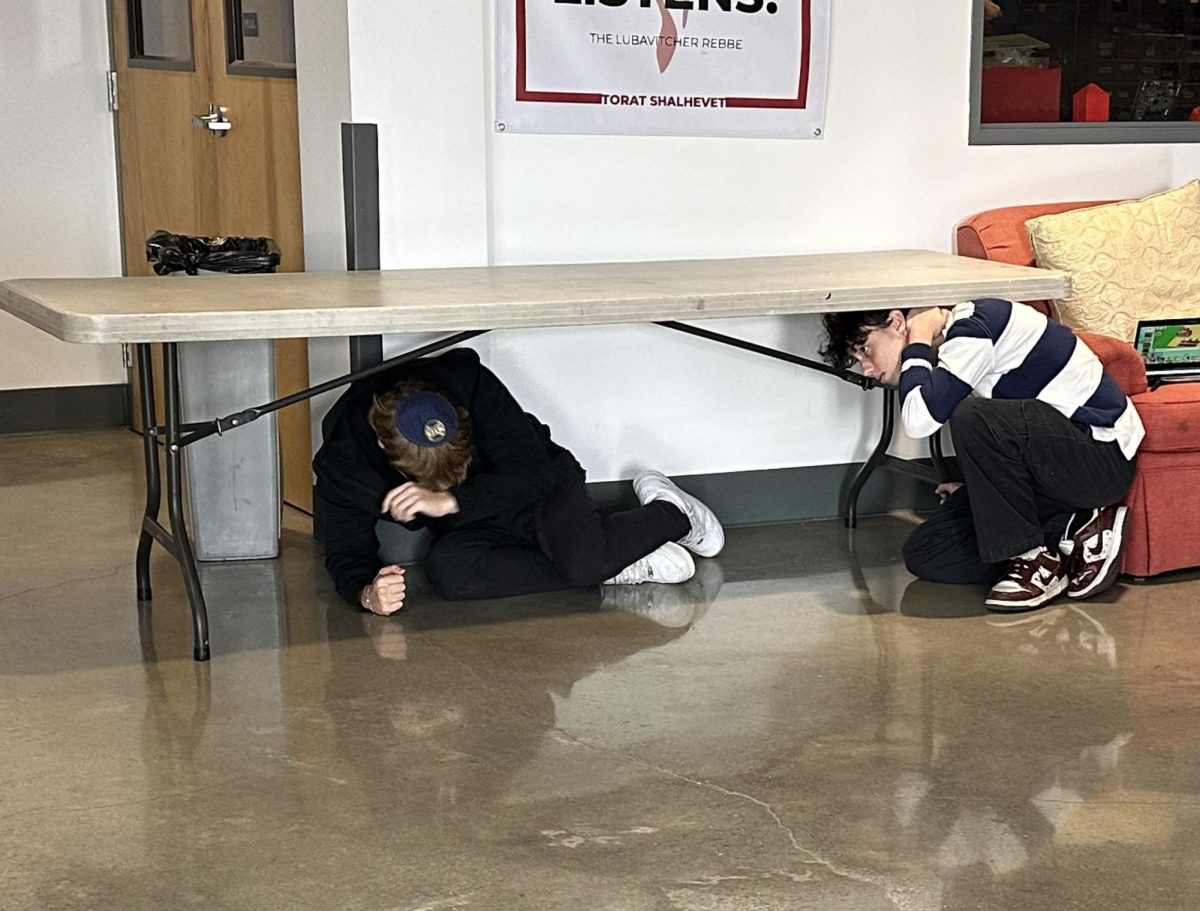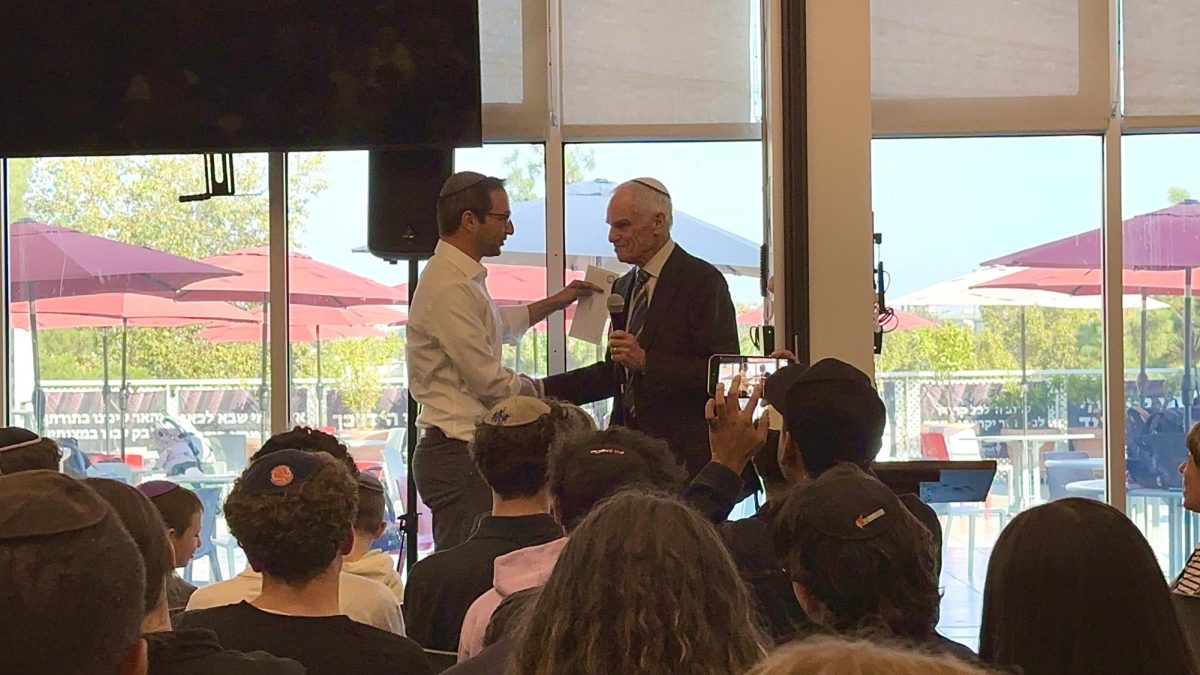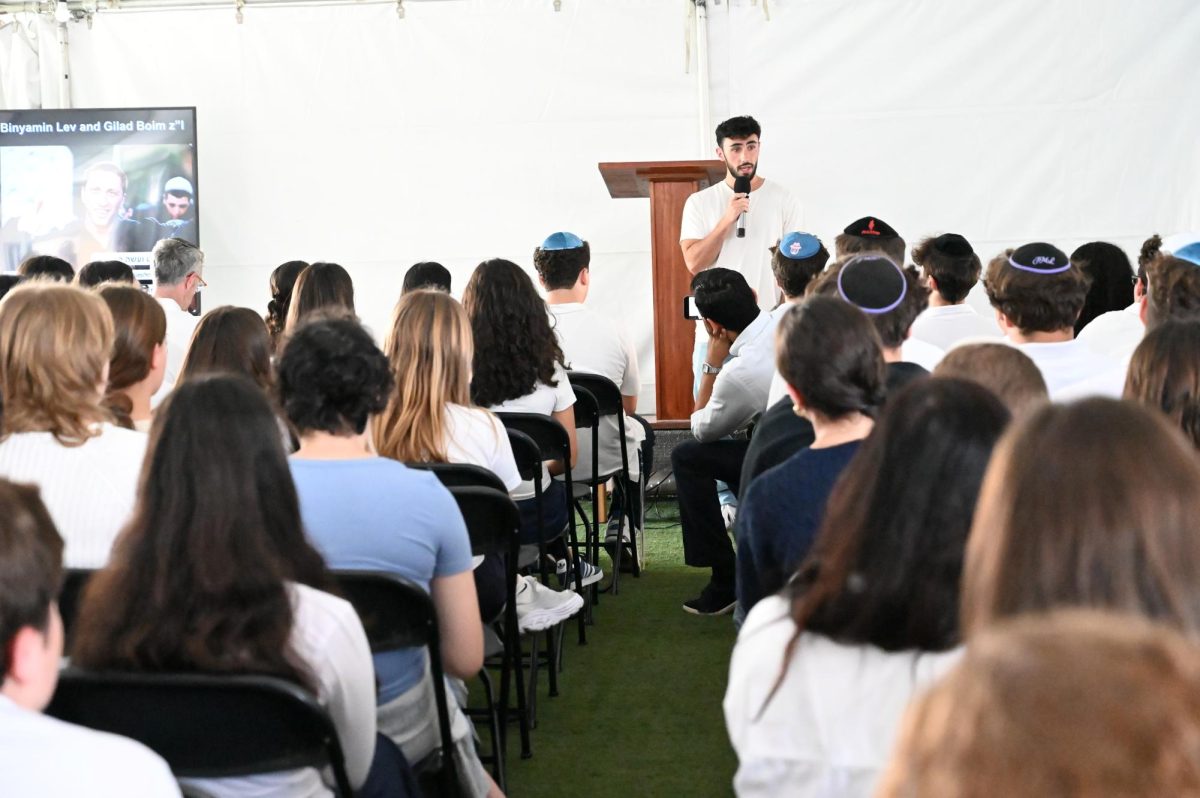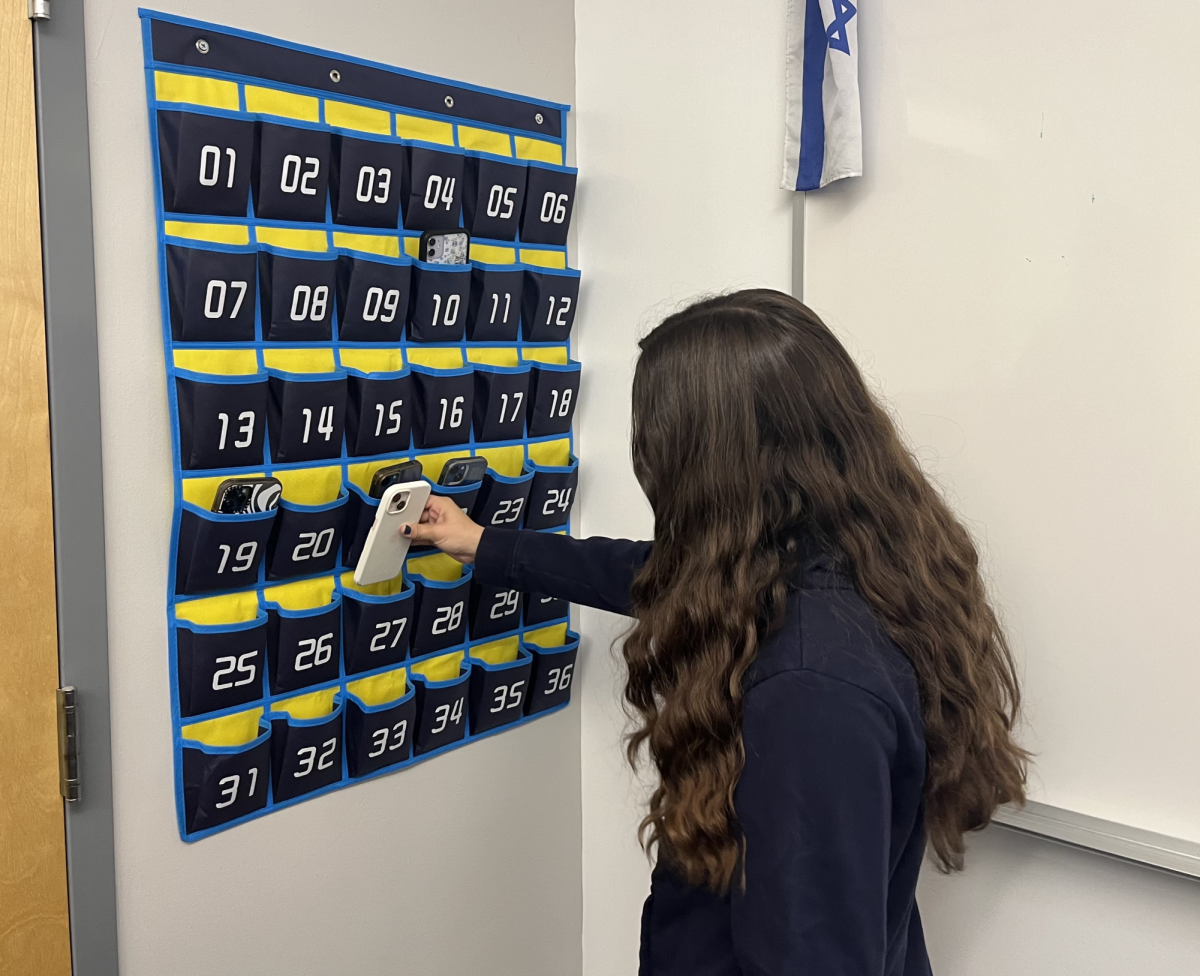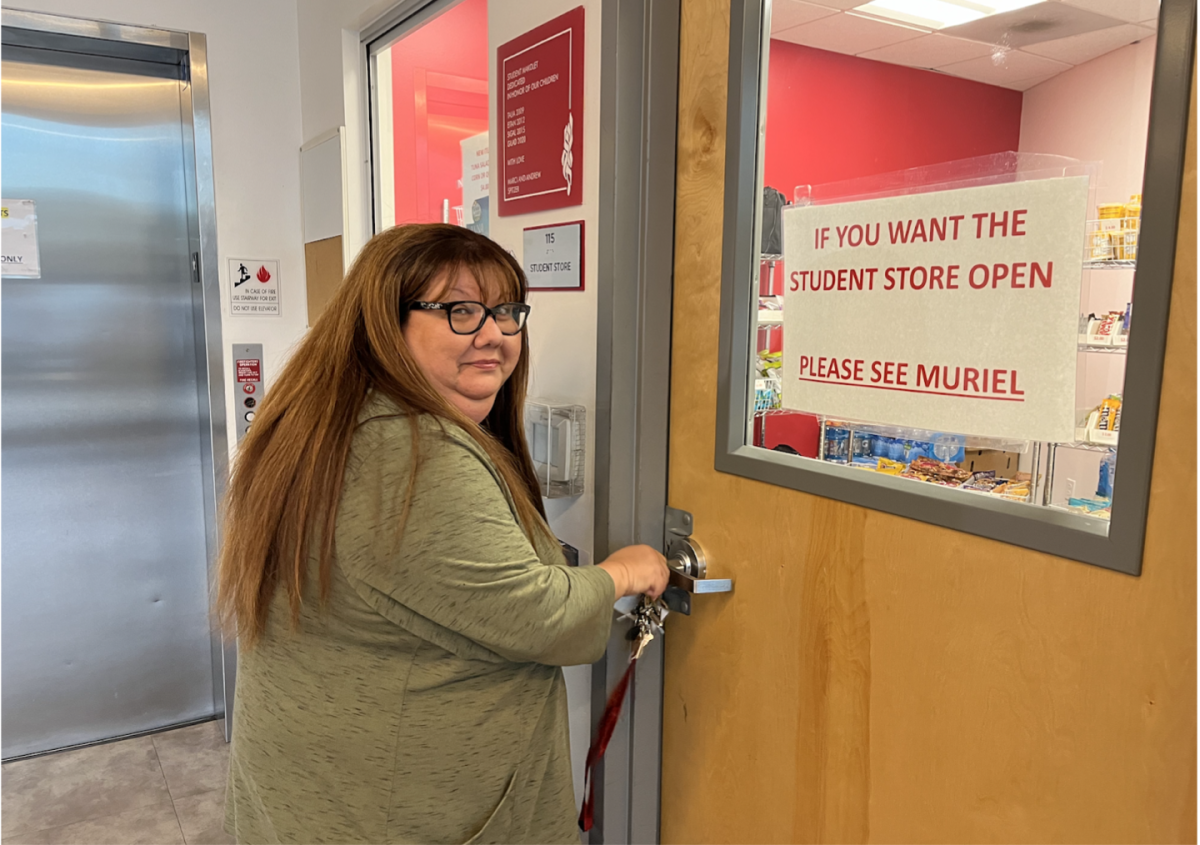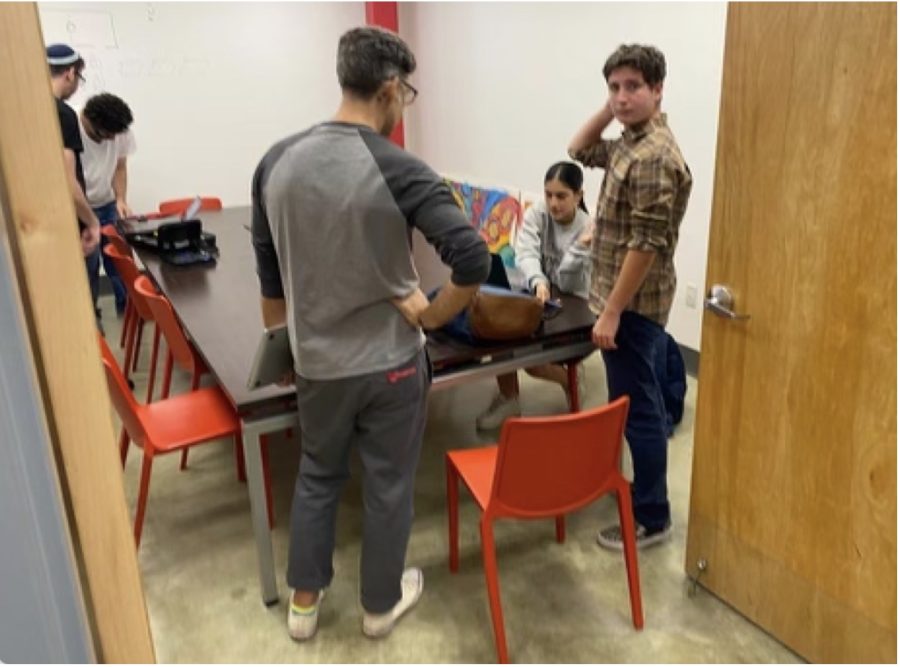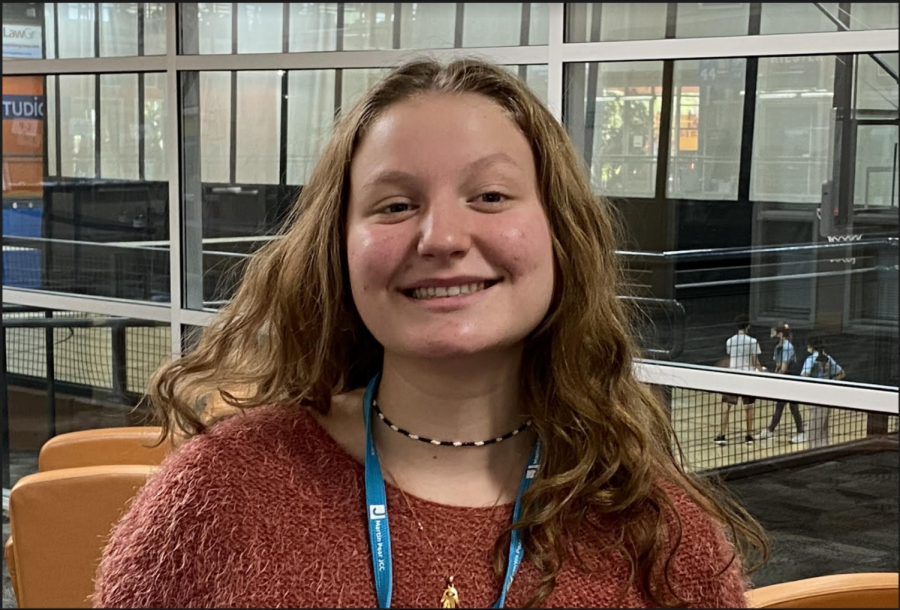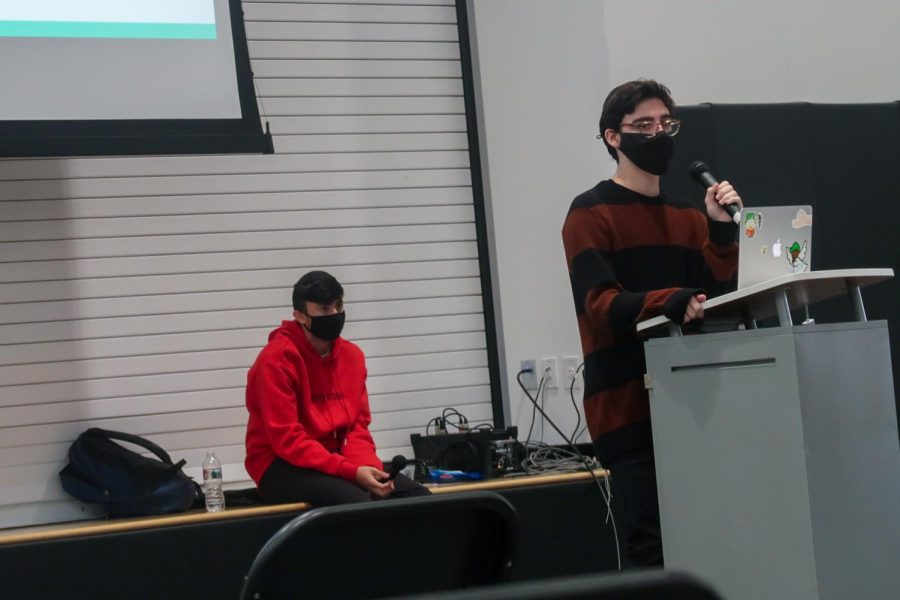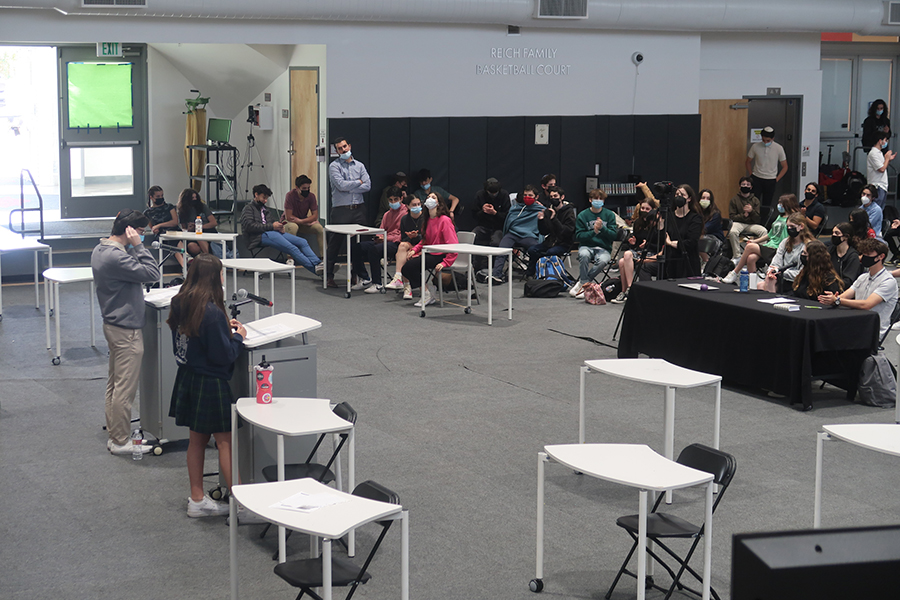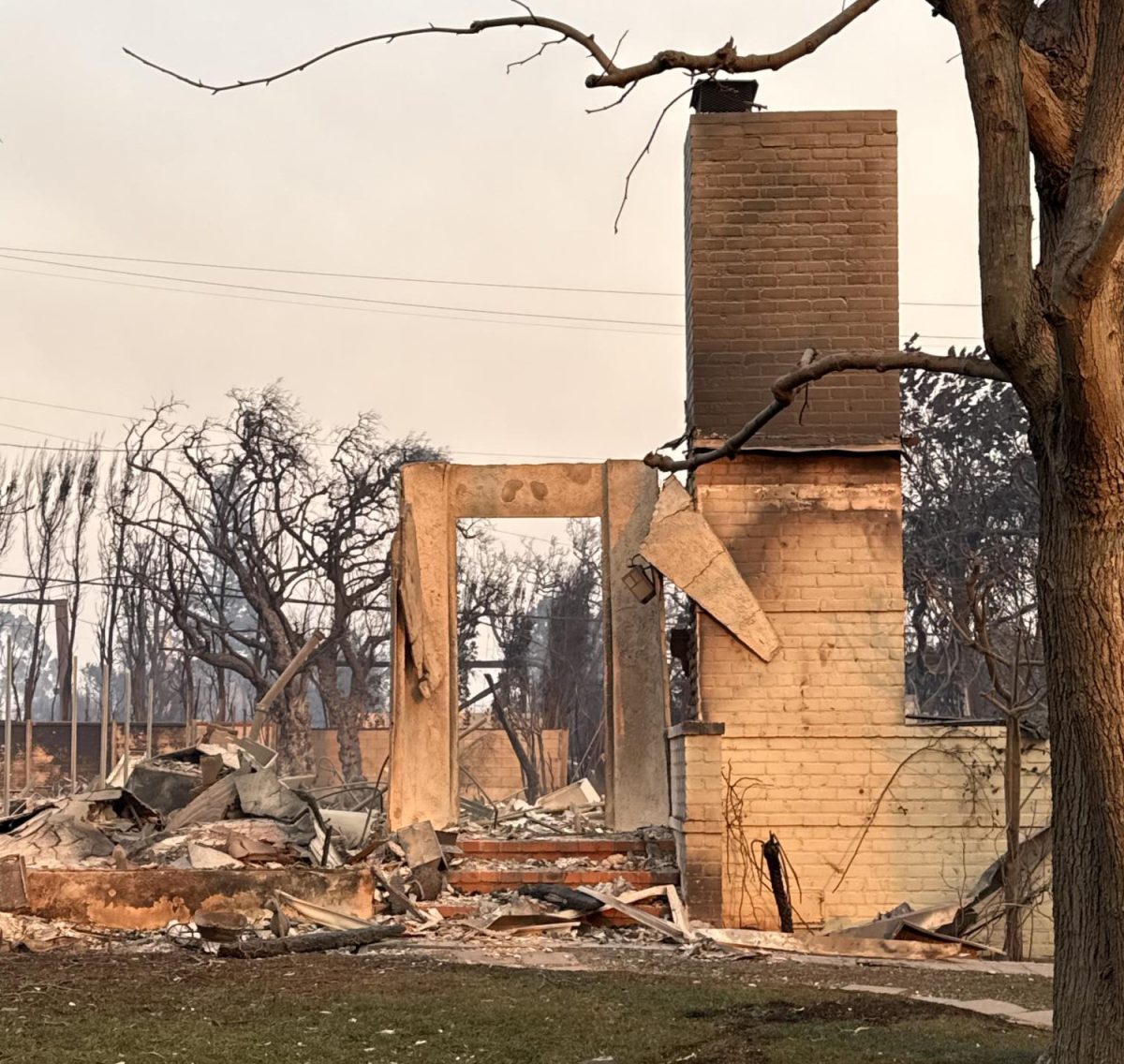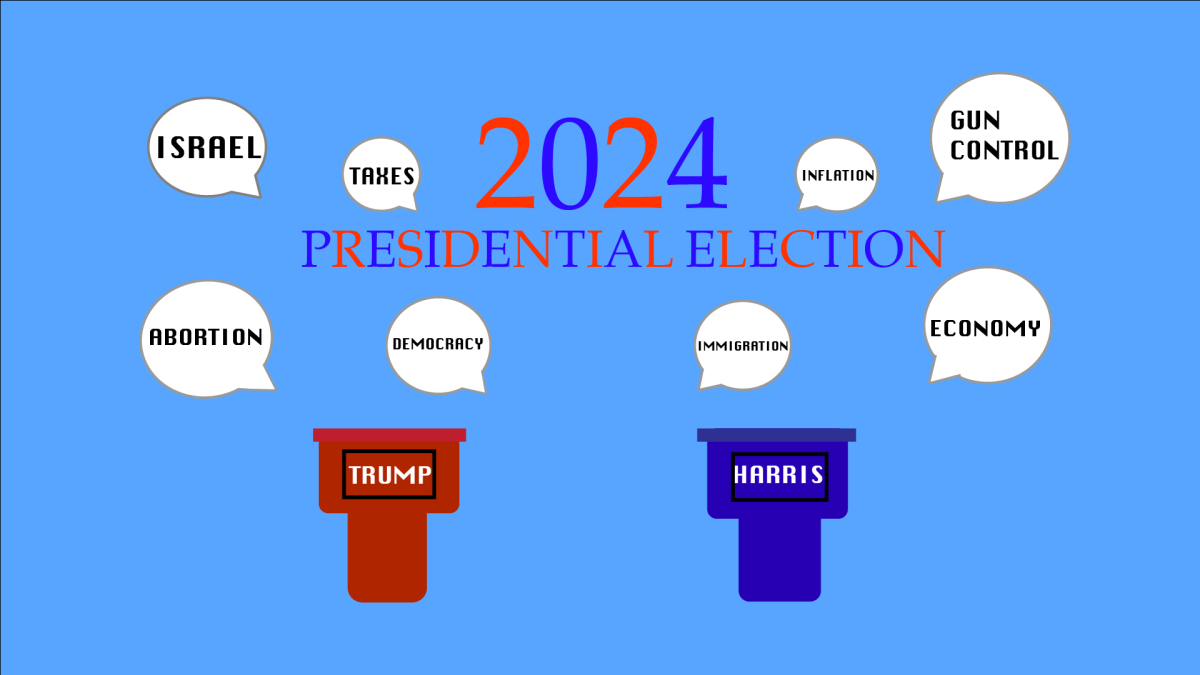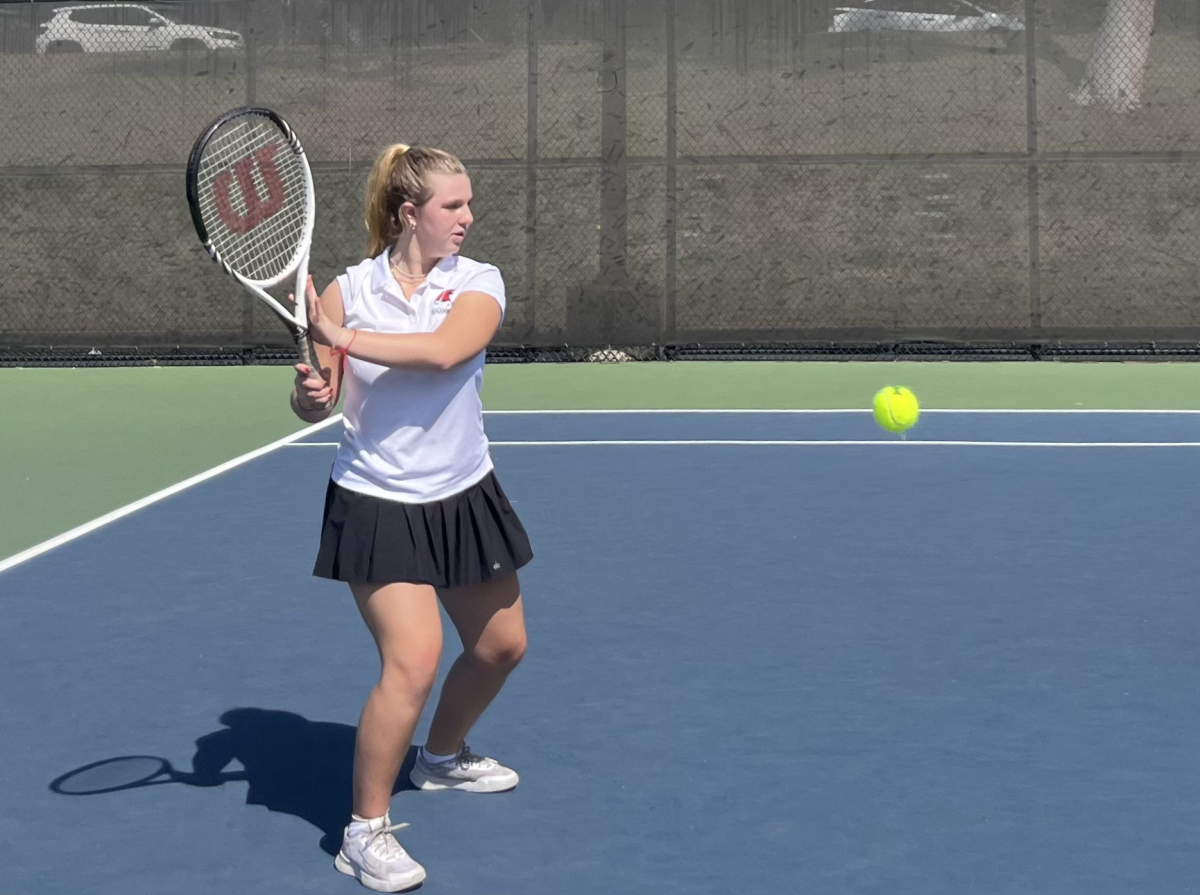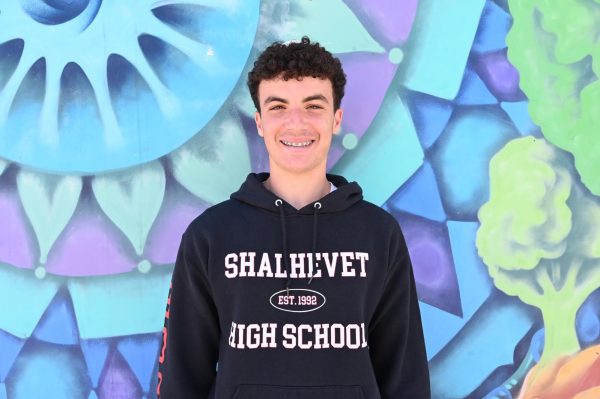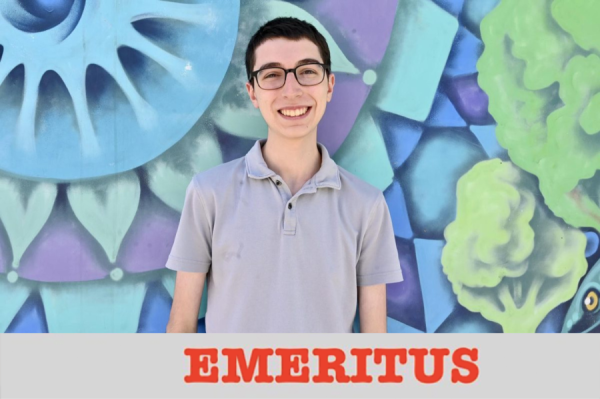By a vote of 91 to 52, the Just Community voted in favor of removing their phones and leaving them aside for Town Hall henceforth after April 9.
The result, which took effect immediately and will continue into next year, was the culmination of a process that began in February, when the Agenda Committee filed a complaint with the Fairness Committee about phone use during Town Hall.
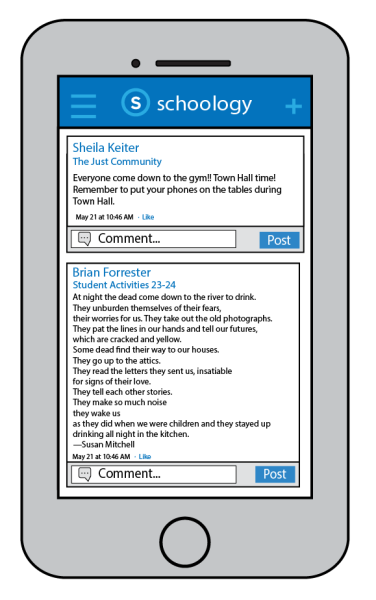
Fairness held an all-school hearing at Town Hall Feb. 27, after which it recommended a three-week phone-free trial, which Agenda and faculty implemented after receiving approval from Head of School Rabbi David Block.
A schoolwide vote was held at the end of the trial period, on April 9. Agenda Chair Rami Melmed announced the result on Schoology April 10.
“The results are in – by a vote of 91-52 (63.6%), the Phone Policy has passed. From now on, Town Hall will be a phone-free environment.”
“From now on, Town Halls will be a phone-free space, with tables in the back as we’ve had for the past three Town Halls, until a change is made,” Rami told the Boiling Point in an interview.
Senior Chaim Cohen voted for the new policy, saying he sees Town Hall as something which is crucial to Shalhevet’s identity and its reputation, and believes it should be productive and efficient.
“It’s very important,” said Chaim in an interview on May 8. “I think in Town Hall we see value… There’s a lot of discussion, and like any conversations, not all are fun. But we need to have them.”
Judaic Studies teacher Rabbi Ari Schwarzberg, long an opponent of letting students make important policy decisions, was happy to be surprised at the outcome.
“This is just about a person’s cognitive development,” Rabb iSchwarzberg aid. “Based on what we know about teenagers, which is that they are likely to make decisions based on what is best for themselves in the short term than what is best in the long run. And it’s not necessarily the best way to run a school.
“So I’m so happy to eat my words on that one,” be said.. “I still do believe it in general, I just give a lot of credit to the Agenda Committee and Dr. Keiter for doing this in such a strategic way where it made a difference. And then for sure kol hakavod to the students for making good decisions.”
The Fairness Committee’s decision was released on Feb. 28, setting in motion the trial period that students were later asked to make permanent.
It recommended that students, teachers and administrators be required to turn in their cellphones at the beginning of Town Hall for the following three weeks. Agenda Chair Rami Melmed said the rule would be enforced by the administration.
“Phones are a privilege, but they have unfortunately become a significant distraction for students at Shalhevet,” wrote Fairness Secretary Tamar Rose to the Just Community Schoology group Feb. 28. “To address this, we are implementing a trial policy where phones are turned in at the beginning of Town Hall. Anyone found using their phone during Town Hall would have the phone confiscated for the remainder of the school day.
“This decision should not be seen as punitive measures but rather as an opportunity to strengthen the Town Hall and the Just Community.”
Lack of teacher participation was also addressed in the Fairness ruling, requiring teachers to sit amongst students during the trial period.
“A significant number of teachers neither attend Town Hall nor actively participate when present,” continued Fairness in Tamar’s Schoology message. “Often, faculty members sit off to the side, on the bleachers, and spend Town Hall on their phones. To encourage more engagement, teachers will be assigned to specific grades and will be required to sit with their assigned grades during Town Hall.”
The three weeks turned into three Town Halls over five weeks, because of three weeks when Town Hall was missed for various reasons. After the three trial weeks, on April 9 during the fourth Town Hall since the Fairness case Rami announced that at the end of the meeting, during which students had had their phones with them, a vote would be held on Schoology.
The ballot was very simple: “Phone policy” followed by two choices, “Yay [sic] (no phones at Town Hall) or Nay (continue Town Halls as usual),” the implication being that a yes vote would continue the phone policy that had been in place for the previous three sessions. When it passed, Rami asked Rabbi Block for permission and then implemented it right away, but only the parts related to phones.
“As a separate point, there isn’t a proposal necessary to get rid of phones at Town Hall.” Rami said in an interview later that week. “The Constitution says that Town Halls run how the Agenda Committee sees fit, and I think it’s appropriate and it’s allowed for the Agenda Committee to say we’re going to take away phones.”
The Constitution allows Agenda to enact any policy for Town Hall if they believe it is needed. So in this particular case, Agenda never needed to consult Fairness, have the administration enforce the trial period or have students take a vote in the first place, Rami said.
But he said he would not have implemented the policy without the consent of the students,
“I don’t think it would be appropriate to do that without the consent and the vote of the community,” said Rami. “So from my perspective, you can say that this is what the Agenda is doing, and we were doing it with the knowledge that this is what the Just Community wants.”
Agenda did not enact Fairness’s recommendations for faculty and administration, or the requirement that Agenda announce Town Hall topics the night before, so students could research them and participate more effectively in the discussion.
“We are in somewhat–uncharted territory,” said Rami. “There has never been a trial period like this before… for a rule – as far as I know. There have been trials, there have been probationary periods, but there have been no trial policies. So I left it up to Fairness and the all school judicial reviews.”
For Rabbi Schwarzberg, the outcome did not change his views of student decision-making in general.
“This is just about a person’s cognitive development,” Rabbi Schwarzberg said. “This is not a judgment on students. It should just make sense.
“I am delighted that things didn’t work out that way this year. And I give a ton of credit to the agenda committee, to Rami and to the school for doing this in a strategic and thoughtful way that actually illustrated to the students that this is actually better for them.
“And I thought it was an amazing reflection about the best version of this community and the whole purpose of Town Hall where we can figure things out together.”



